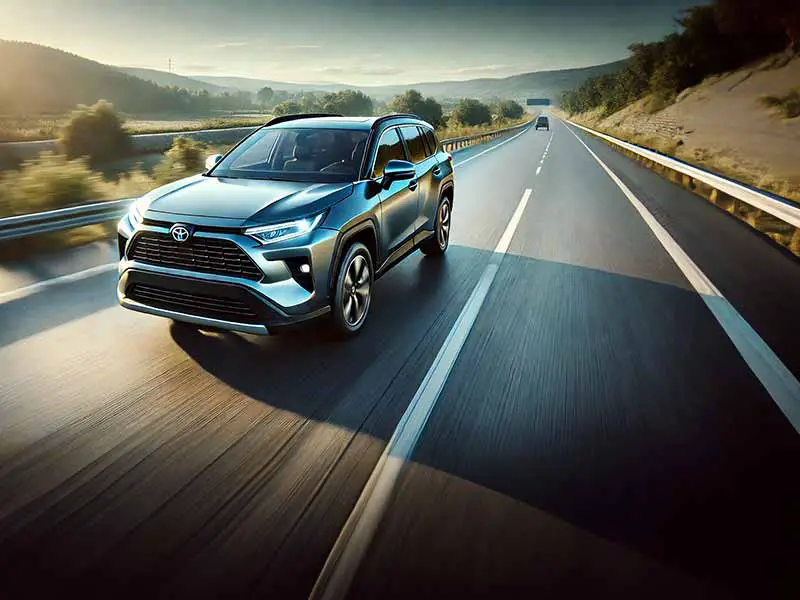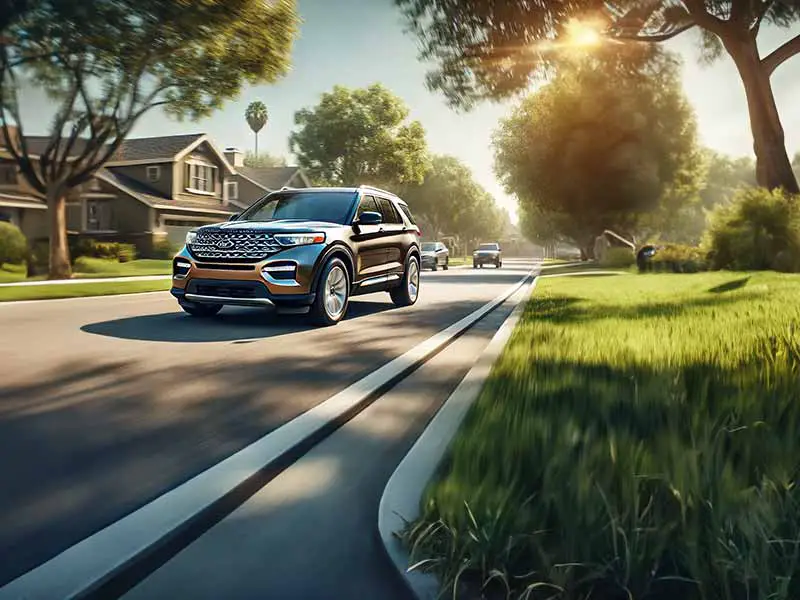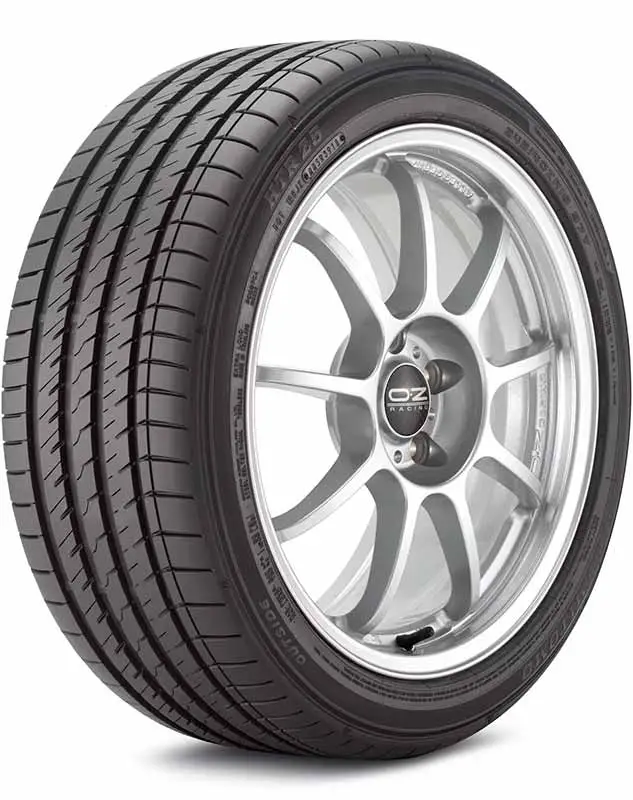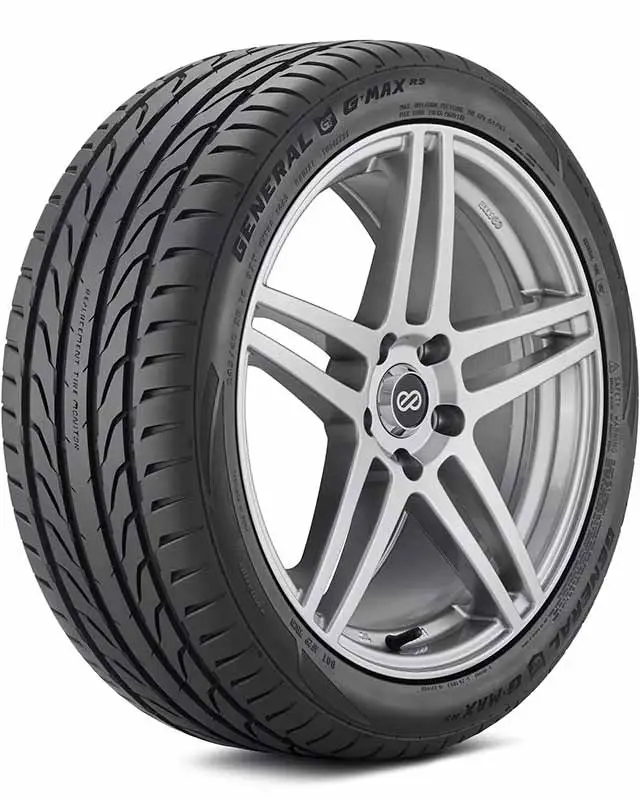It’s not uncommon for people to notice that their car feels weird after tire rotation. Sometimes there will also be new noises and vibrations as well.
Most of this is normal, but some of these effects can be symptoms of a problem that either existed before the tire rotation or were caused by it being done incorrectly.
Let’s cover all of the normal issues as well as some of the worrying problems that can happen after car tire rotation.
Vibration And Noise After Tire Rotation
Tires that have uneven wear patterns often cause tire noise and vibrations after tire rotation. Even tires with fairly even wear can cause some noise and vibration initially.
Humming or helicopter-like sounds are common complaints. More severe wear problems can cause vibrations as well. This will usually go away as the tires wear in to their new positions.
If tire noise and vibration doesn’t go away or begin to improve after a short period of time you should consider rebalancing your tires and having an alignment performed.
Lastly, always inspect your car tires to ensure there aren’t any sidewall bulges or foreign debris embedded in the tread that can be dangerous.
What Causes Tire Noise After Rotation?
Tire noise is almost always a short term result of tire rotation. It usually goes away after a short period of time as the tires begin to wear down the uneven wear patterns.
The reason for the tire noise is the uneven wear patterns and the new contact patches the worn tires are now riding on.
As the tire treads begin to wear in and smooth out, the annoying tire noise should begin to subside. Some road noise will obviously always be present but humming or helicopter-like sounds should begin to fade after a few days.
Humming Noise
The most common weird noise reported after tire rotation is a humming sound which is usually caused by poorly worn car tires or tires that have not been rotated on a proper rotation schedule. Usually this humming noise will go away after the tires wear in.
Louder humming noises from your tires after a rotation may indicate that you have alignment issues. If you haven’t had your car or truck alignment checked in 10,000 miles or more, you may want to have that service performed to ensure your tires aren’t wearing poorly due to misalignment.
Helicopter Sound
A more annoying sound that is also somewhat common after tire rotation is what is described as a helicopter sound.
This strange noise is basically just a more severe humming sound and indicates that you likely have had an alignment problem or other suspension problem that has caused your tires to wear unevenly. So much so that the uneven wear is causing this loud noise.
A car alignment is recommended if it hasn’t been performed recently. If it was done when your tires were rotated then you should give it some time for the tires to wear in and smooth out. The road noise should eventually settle down to a normal level.
Grinding Or Scraping Sound
A more significant problem that is sometimes reported is a scraping sound. This is quite rare but does happen after a tire rotation has been performed.
It’s possible that the wear indicator (also known as the squealer) got bumped and is contacting the rotor. Or it could be coincidental that a tire rotation coincided with the time your wear indicator came into contact with your rotor.
A more likely reason for grinding or scraping noise after a tire rotation is your tire service tech not using a torque wrench when mounting your wheels back on your vehicle.
Using a torque wrench and insuring that the lug nuts are torqued to specification for your car or truck is important to ensure brake rotors don’t get warped due to inconsistently torqued lug nuts.
Warped brake rotors and squealers aren’t the only source of scraping and grinding sounds though. Dust shields that are either bent or improperly reinstalled can come into contact with the tire sidewall or wheel rim or brake rotor and make a scraping or grinding sound.
Wheel Bearing Noise
One last source of grinding or scraping noise that we’ll cover here is a bad wheel bearing. Wheel bearings problems are a major issue and critical to fix before failure. Failure while driving can be catastrophic.
Wheel bearing noise is usually more noticeable when turning in the direction that the vehicle’s weight is leaning on the bad bearing.
Tire rotation won’t cause wheel bearing failure but coincidences are do happen. If you think you may have a failing wheel bearing you should have it inspected immediately.
Warped Brake Rotor Noise
It’s important that your tire tech use a torque wrench when mounting your wheels back on your car or truck. Excessive torque on lug nuts can cause your brake rotors to not be able to expand and contract evenly as they heat up and cool back down, causing them to warp.
Warped rotors can be fixed by truing them if there is enough thickness left. Otherwise they will need to be replaced.
What Causes Vibration After Tire Rotation?
If you notice a weird vibration that wasn’t there before having your tires rotated it’s most likely due to a tire that was on the rear previously was out of balance and is now noticeable after being moved to the front axle.
A slightly out of balance tire can easily go unnoticed on the rear axle. It’s further away from the driver’s seat and your hands aren’t directly connected to it through the steering wheel.
Steering Wheel Vibration
Some minor steering wheel vibration can occur immediately after having your tires rotated. It’s not too uncommon if your tires had worn unevenly previously. It should begin to fade as the tires begin to smooth out with use.
Another source of steering wheel vibration is an unbalanced front tire. It’s recommended to have your tires rebalanced regularly. The amount of time recommended varies, but it is a good idea to have them rebalanced at least during every other tire rotation.
Properly balanced tires will eliminate the source of most vibrations and help ensure your tires wear more evenly and last longer.
It’s much easier to feel tire imbalances through the steering wheel and they are most noticeable after having the tires rotated and there is an opportunity for a more drastic difference to be experienced.
Tires will get out of balance slowly over time as rubber wears away, but this isn’t likely to cause dramatic sudden differences. It’s more likely that a wheel weight will come loose and cause the vibration. Wheel weights can even get accidentally knocked off during rotation and cause significant vibrations.
Body Vibration
Particularly poor tire wear can cause a bit of a noticeable bumpy ride immediately after having your tires rotated. Like helicopter sounds and humming, this should go away after some time if there aren’t any other factors causing the vibrations.
Body vibrations that aren’t felt through the steering wheel are likely from the rear tires. If these vibrations don’t go away after a short period of time you should have your tires checked to see if they are balanced properly.
Brake Pedal Vibration
Brake pedal vibration is usually not due to the tires themselves but the brake rotors. If you’re experiencing vibrations immediately after having your tires rotated it may be possible that the lug nuts were not torqued down properly and the brake rotor has become warped as a result.
Lug nuts that are too tight can prevent the brake rotor from freely expanding and contracting as they heat and cool with use. This binding can cause them to flex and warp after you’ve driven on them for a short time after over tightening of the lug nuts.
The warped rotor can send pulses through the hydraulic fluid in the brake lines as the warped rotors vary the pressure on the brake pads as they spin.
Newer brake rotors with enough thickness can be trued but older rotors that are significantly worn down may not have enough thickness left be able to be safely evened out or worth the trouble for the short amount of life they may have left.
Wheel Alignment Problem
If you’re experiencing significant noise and vibration after having your tires rotated there’s a good chance your vehicle isn’t properly aligned.
A poor alignment issue will cause your tires to wear unevenly and after a rotation, this uneven wear is very noticeable as vibration and tire noise.
If you think you have an alignment problem you should have your vehicle realigned as soon as possible to prevent further uneven tire wear that is shortening the life of your tires.
Alignment issues are the primary cause of uneven tire wear that will cause noise and vibration. Worn or failing suspension components are another possible source.
Worn or failing suspension components will likely be identified during an alignment and can be fixed them if discovered.
Over or under inflation can also cause uneven wear but is not likely to cause noise or vibration.
Tire Balance Problem
Most vibration problems that don’t go away after a short period of time after a rotation are the result of a tire imbalance. If you continue to have vibrations after rotation you should consider having your tires rebalanced.
Road force balancing is the best method for ensuring that your tires are properly balanced. They better simulate the stresses on a tire as it spins by applying pressure to the tire while balancing.
Final Thoughts
Tire noise and vibrations after having your car tires regularly rotated can be annoying. Most of the time these weird noises and vibrations will fade away after a short period of time.
If you continue to experience noise and vibrations or they become worse, you may have an underlying problem that needs to be fixed.
Consider having your tires balanced and car aligned. You should inspect your tires for damage such as sidewall bulges or foreign debris lodged in the tread or sidewall.
Resources
Below are some links you may find helpful when learning about tires






